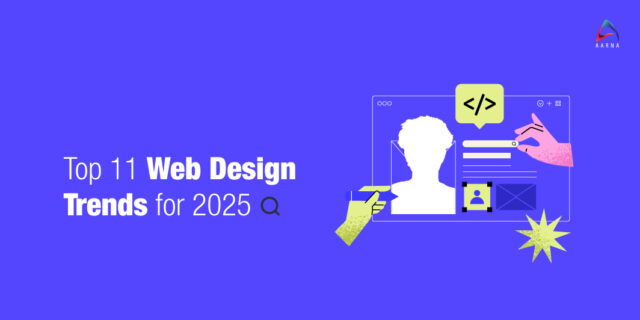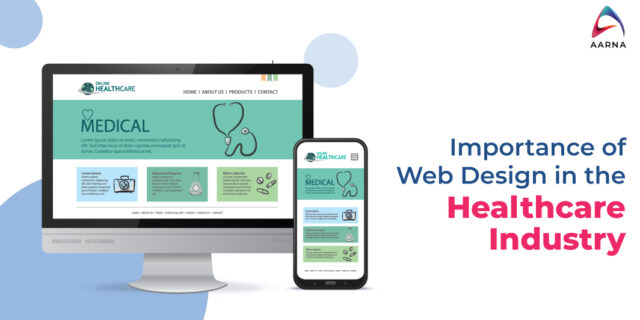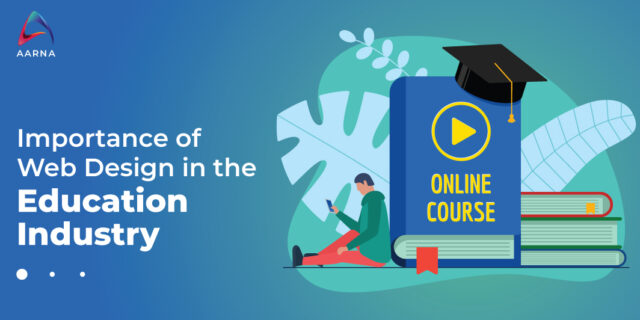The digital landscape is witnessing a remarkable transformation in 2025, as web design continues to push the boundaries of creativity, functionality, and user experience. Gone are the days of static websites and one-size-fits-all approaches. Today’s digital sphere is vibrant, dynamic, and intelligently responsive, adapting to individual user needs while prioritizing both aesthetics and performance.
At Aarna Systems, the leading web design agency in Pune, we’re buzzing with excitement to share the most mind-blowing web design trends that are transforming the digital landscape! Trust us, these aren’t just any ordinary updates – we’re talking about game-changing innovations that are reshaping how businesses connect with their audiences online. Whether you’re looking to refresh your healthcare practice’s online presence, showcase properties in stunning 3D, or create an engaging educational platform, these web design trends are your ticket to standing out in the digital crowd. Let’s check it out!
Top 11 Web Design Trends for 2025
- GenAI-Powered Personalization and Dynamic Layouts
GenAI is revolutionizing how websites interact with users by creating highly personalized experiences. Smart algorithms analyze user behavior, preferences, and historical data to dynamically adjust content layouts, navigation paths, and even color schemes in real-time. For example, e-commerce websites may automatically reorganize product displays based on browsing history, while content platforms can adjust article recommendations based on reading patterns. AI-driven chatbots also offer near-human interactions, understanding complex queries and providing personalized assistance.
Ideal for:
- E-commerce websites that need personalized product recommendations.
- Content platforms delivering customized articles based on user interests.
- Service websites offering personalized user interactions.
Why It Matters: Personalization enhances the user experience, making websites more engaging and relevant to individual visitors. Businesses can improve customer satisfaction, loyalty, and conversion rates by adapting content and design to user preferences.
- Neo-Brutalism in Modern Web Design
Neo-brutalism represents a bold departure from conventional design aesthetics, embracing raw, unpolished elements and stark contrasts. This trend features intentionally harsh typography, vivid colors, and asymmetrical layouts that challenge traditional design norms. Designers are incorporating exposed elements, such as visible grid systems and unrefined edges, creating authentic and unconventional websites. High-contrast color combinations and oversized typography make bold statements while maintaining functionality.
Ideal for:
- Creative portfolios and personal websites looking for a bold, unique aesthetic.
- Youth-oriented brands targeting a design-conscious audience.
- Startups and tech companies wanting to stand out with unconventional designs.
Why It Matters: Neo-brutalism challenges traditional design and provides a fresh perspective that resonates with younger, design-savvy audiences. It’s ideal for brands looking to make a strong statement and differentiate themselves from conventional websites.
- Sustainable Web Design Practices
As sustainability becomes more important, eco-friendly web design practices are gaining traction. Developers are focusing on reducing energy consumption and optimizing websites for faster load times. This includes image compression, efficient coding, and green hosting providers. Dark mode options are also being implemented to conserve energy, especially on OLED screens.
Ideal for:
- Companies with a strong environmental or sustainability focus.
- E-commerce sites looking to reduce their carbon footprint.
- Nonprofits and government organizations advocating for green practices.
Why It Matters: Sustainable web design practices show a commitment to the environment and appeal to eco-conscious consumers. By adopting these practices, businesses can reduce their carbon footprint and align with growing consumer demand for sustainable practices.
- Voice Search Optimization
With the rise of voice assistants like Siri, Alexa, and Google Assistant, optimizing for voice search has become a priority. Websites are being redesigned to accommodate natural language processing and conversational queries. This includes restructuring content to answer specific questions directly and implementing schema markup to improve visibility for voice searches. Additionally, designers are creating voice-friendly navigation systems and voice commands for core website functions.
Ideal for:
- Local businesses optimizing for voice searches like “near me.”
- E-commerce websites offering hands-free shopping experiences.
- Educational platforms optimizing for conversational queries.
Why It Matters: As voice search grows in popularity, businesses that optimize for it will be able to provide a more seamless and natural user experience. This trend allows users to engage with websites using voice commands, making browsing easier and more convenient.
- Enhanced Privacy and Security Features
With growing concerns about data privacy, websites are prioritizing security. This includes advanced encryption protocols, secure payment gateways, and transparent data handling policies. Designers are focusing on intuitive privacy controls, allowing users to easily manage their data preferences. Two-factor authentication is being implemented with smoother user experiences, and cookie consent mechanisms are becoming more transparent.
Ideal for all websites, especially:
- Financial services and online banking platforms requiring high-level security.
- E-commerce websites handling sensitive information.
- Health and medical websites where privacy is critical.
Why It Matters: Consumers are becoming more conscious of their data privacy, and businesses that prioritize security will build trust with their users. By making privacy controls easy to use, businesses can improve customer confidence and avoid potential data breaches.
- Immersive 3D Experiences
Three-dimensional elements are taking web design to the next level. With advanced WebGL technology, websites are featuring interactive 3D models, virtual showrooms, and product demonstrations. These immersive experiences offer users the ability to interact with products in real time, providing a richer experience than traditional 2D images. This trend is especially impactful in e-commerce, where users can examine products from every angle.
Ideal for:
- E-commerce websites allowing users to interact with products in 3D.
- Real estate websites offering virtual property tours.
- Educational platforms using interactive 3D models for learning.
Why It Matters: 3D experiences create highly engaging interactions that allow users to better understand products or services. For industries like e-commerce and real estate, this trend offers a dynamic and immersive way to engage potential customers, boosting conversions and sales.
- Dark Mode Evolution
Dark mode continues to be a preferred feature among users, and its implementation is becoming more sophisticated. Designers are focusing on smooth transitions, automatic switching based on device settings or time of day, and carefully selected color palettes for readability. Dark mode not only reduces eye strain but also provides a sleek, modern aesthetic.
Ideal for:
- Blogs and content-heavy websites with lots of text.
- Social media platforms offering customizable user experiences.
- Corporate websites looking to provide a modern, sleek look.
Why It Matters: Dark mode enhances user comfort by reducing eye strain, especially in low-light environments. Offering dark mode helps businesses cater to user preferences and creates a more pleasant browsing experience.
Need a Dark Mode Website? Hire the Best Web Designers in Pune.
- Inclusive and Accessible Design
Inclusive design has become essential for ensuring that websites are usable by people of all abilities. This includes implementing ARIA labels, enabling keyboard navigation, and providing alternative text for images. Designers are also focusing on flexible interfaces that allow users to adjust text sizes, contrast, and other visual elements to meet their needs.
Ideal for:
- Government websites that serve a broad range of users.
- Educational websites with diverse learning needs.
- Health and wellness platforms targeting users with disabilities.
Why It Matters: Inclusive design ensures that everyone, regardless of ability, can access and engage with your website. By making websites more accessible, businesses can reach a wider audience and demonstrate a commitment to diversity and inclusivity.
- Micro-Interactions and Subtle Animations
Micro-interactions and animations have become key to enhancing user engagement. These small, subtle effects provide feedback to users and create a more interactive experience. Examples include hover effects, loading animations, and transition states. These micro-interactions guide users through their journey, making websites feel more intuitive and enjoyable.
Ideal for:
- E-commerce websites improving product interactions and checkout processes.
- SaaS websites offering smooth, engaging user interactions.
- Portfolio websites using animations to enhance browsing.
Why It Matters: Micro-interactions improve user satisfaction by providing visual feedback and making websites feel more interactive. These subtle animations help guide users without being overly distracting, creating a seamless, enjoyable experience.
- Data-Centric Design Approaches
Data-driven design is gaining momentum, with websites increasingly relying on analytics and user data to shape their design. Heatmaps, user flow analysis, and A/B testing allow designers to make informed decisions based on how users interact with the website. Data insights help optimise layouts, content, and navigation to improve user engagement and conversion rates.
Ideal for:
- E-commerce platforms optimizing user journeys and product recommendations.
- News websites using heatmaps and analytics to improve article placement.
- Businesses focused on improving conversion rates through data-driven design.
Why It Matters: Data-centric design helps businesses create websites that align with user behavior, improving overall user experience and conversion rates. By analyzing data, businesses can continuously optimize their websites for maximum impact.
- Progressive Web Apps (PWAs)
Progressive Web Apps are revolutionizing how we experience websites. PWAs offer app-like experiences directly from the web browser, with offline functionality, push notifications, and seamless mobile experiences. Designers are creating PWAs that maintain brand consistency across platforms while leveraging device-specific features.
Ideal for:
- Businesses seeking an app-like experience without the cost of app development.
- Retailers wanting a fast, reliable mobile experience for users.
- Travel and hospitality websites offering offline functionality for bookings.
Why It Matters: PWAs combine the best aspects of both websites and native apps, offering a seamless, reliable user experience. They’re perfect for businesses looking to provide a fast, efficient mobile experience without investing in native app development.
Stay Ahead with the Latest 2025 Web Design Trends
As we’ve explored these groundbreaking web design trends for 2025, one thing becomes crystal clear – the future of digital experiences is here, and it’s more exciting than ever! These trends aren’t just about creating visually stunning websites; they’re about crafting meaningful, personalized, and impactful digital experiences that drive real results.
Looking to bring these innovative trends to life for your business? That’s where Aarna Systems steps in as the leading web design company in Pune. With our comprehensive understanding of cutting-edge technologies and a proven track record, we’re uniquely positioned to transform your digital presence. Our team of expert web designers and developers has already implemented these trends successfully across various industries, creating websites that don’t just look amazing – they perform exceptionally well too.
What sets us apart? We’re not just designers; we’re strategic partners who combine these latest trends with robust digital marketing expertise. From AI-powered solutions to sustainable design practices, we deliver websites that are not only ahead of the curve.
So, gear up to catch the best web design trends for 2025 with Aarna Systems by your side. Feel free to connect and discuss your business’ web design needs with us. Let’s design something outstanding together!


